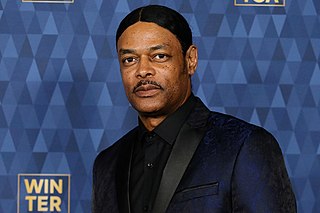A Quote by Isaac Wright Jr.
I think one of the things that happens with, especially in the criminal justice system, is that the prosecutor is able to control the narrative from the very, very beginning. The moment an arrest is made, they put out a press release to the media and the media follows that narrative.
Related Quotes
I think we have to continue to protect women on social media, who are coming out in a world that can still be very harsh towards them, so that they do not feel that they are alone. And of course, some of these attacks happen on social media, so we do need to provide a counter narrative - a supportive narrative - so that the voices of those that are punitive towards women does not become the dominant voice.
I'm a former lefty, I understand how vicious these people are, I understand that they feel they have the right to control the sandbox, and I am trying to orchestrate media that isn't just out there to push the right-of-center Libertarian narrative, I'm out there to destroy the false order, the false control that the left has in controlling the mainstream media in America.
For queer people, the personal is very political, just to talk about it in a public space. It's very political just to come out and take up that space and be like, 'This is my narrative. It's not an outsider narrative, and it's not a fetish narrative; it's just my story, and it's worth being told and listened to.'
When there is this giant narrative, when there is a singular story out there like there is right now about the Russians hacking the election so that Donald Trump would win - when the media is pumping it and the Democrats are quoting the media and the media's quoting the Democrats and it's just like a giant blanket thrown all over the country - don't believe the story. It's made up! It is a script. I call the daily soap opera.
Thinking about free speech brought me to media regulation, as Americans access so much of their political and cultural speech through mass media. That led me to work on the FCC's media ownership rules beginning in 2005 to fight media consolidation, working with those at Georgetown's IPR, Media Access Project, Free Press, and others.
I think that's true of real life - we don't ever know anyone completely. Secrets are very important to creating a narrative work that's believable. The characters come into that world with secrets, as happens to all of us. As honest as we try to be in our relationships, we can never completely know someone. From a narrative perspective it's very important and pleasing - you want to have those secrets there. The secret is an essential part of the creation of the novel.





























